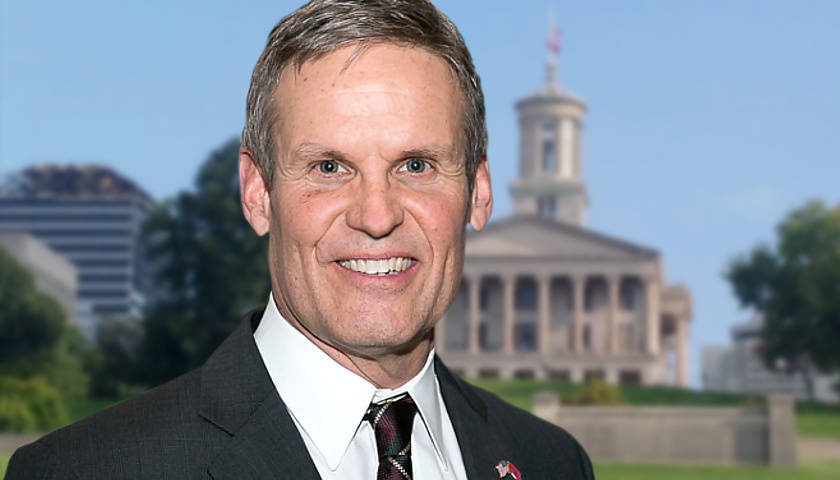Tennessee Gov. Bill Lee ranks seventh in The American Legislative Exchange Council’s new scorecard that assesses America’s 50 governors on policy performance and leadership before and after the start of the COVID-19 health crisis.
Members of the Arlington, Virginia-based ALEC released their 2020 Laffer-ALEC Report on Economic Freedom Tuesday.
“Tennessee Governor Lee has restrained state spending, including his billion-dollar proposed spending reduction for FY 2021. In lieu of lobbying for more federal subsidies, Governor Lee has proposed a further spending reduction to account for a decline in revenue expectations,” according to the ALEC report.
“Along with these notable actions, his continuance of fiscally responsible debt, union, education, and welfare policies grant the Governor a five-star rating.”
ALEC awarded each governor an overall rank, a results rank and a policy rank, which is expanded to list the exact criteria used so readers can identify how their state leader stacks up and why. Governors and taxpayers can also use the criteria to determine state policy areas that need improvement, such as tax and spending policy, handling of federal funds from the CARES Act and economic competitiveness data, according to an ALEC press release.
Study co-author Stephen Moore said in the press release that government lockdowns and unclear timetables have harmed the health and economy of various states.
“It’s no surprise, states where governors mandated strict lockdowns and restricted individual freedom are in far worse shape than states that remained safely open,” Moore said.
ALEC ranked Texas Gov. Greg Abbott as the best governor on policy performance and leadership before and after the start of the COVID-19 health crisis. The organization ranked Rhode Island Gov. Gina Raimondo as the worst.
“President Trump wisely respected the principle of federalism and empowered elected state leaders to make critical decisions and shape their own health and economic responses to the pandemic,” said ALEC Chief Economist Jonathan Williams in the press release.
“Unsurprisingly, the 50 governors took very different approaches to policymaking. Some reduced taxes, regulations and enhanced their economic competitiveness, while others took a very different policy strategy. That’s why it is important to use reports like this one to compare and contrast the widely different results.”
Williams and Moore co-authored the report along with Reagan Economist Arthur B. Laffer and Donna Arduin.
The report said “we must adamantly reject the notion that governors choosing to open their states have placed greed, profits, and business over safety.”
“This is, and always has been, a false narrative – a Sophie’s choice that does not exist. Nor is there evidence that the reopening in Florida, Texas, or Arizona led to a substantial increase in deaths,” the authors wrote in their report.
“The reality we face is that there are negative and indirect health consequences to economic lockdowns. There were undeniable mistakes made when opening bars, restaurants, and other indoor activities without proper protections, but none of these plans were adopted by governors without first considering the safety of their constituents.”
– – –
Chris Butler is an investigative journalist at The Tennessee Star. Follow Chris on Facebook. Email tips to [email protected].






Not sure that holding back on runaway government spending while ducking responsibility equals a good governor.
It is easy to restrain spending when you’re asleep at the wheel your whole term.